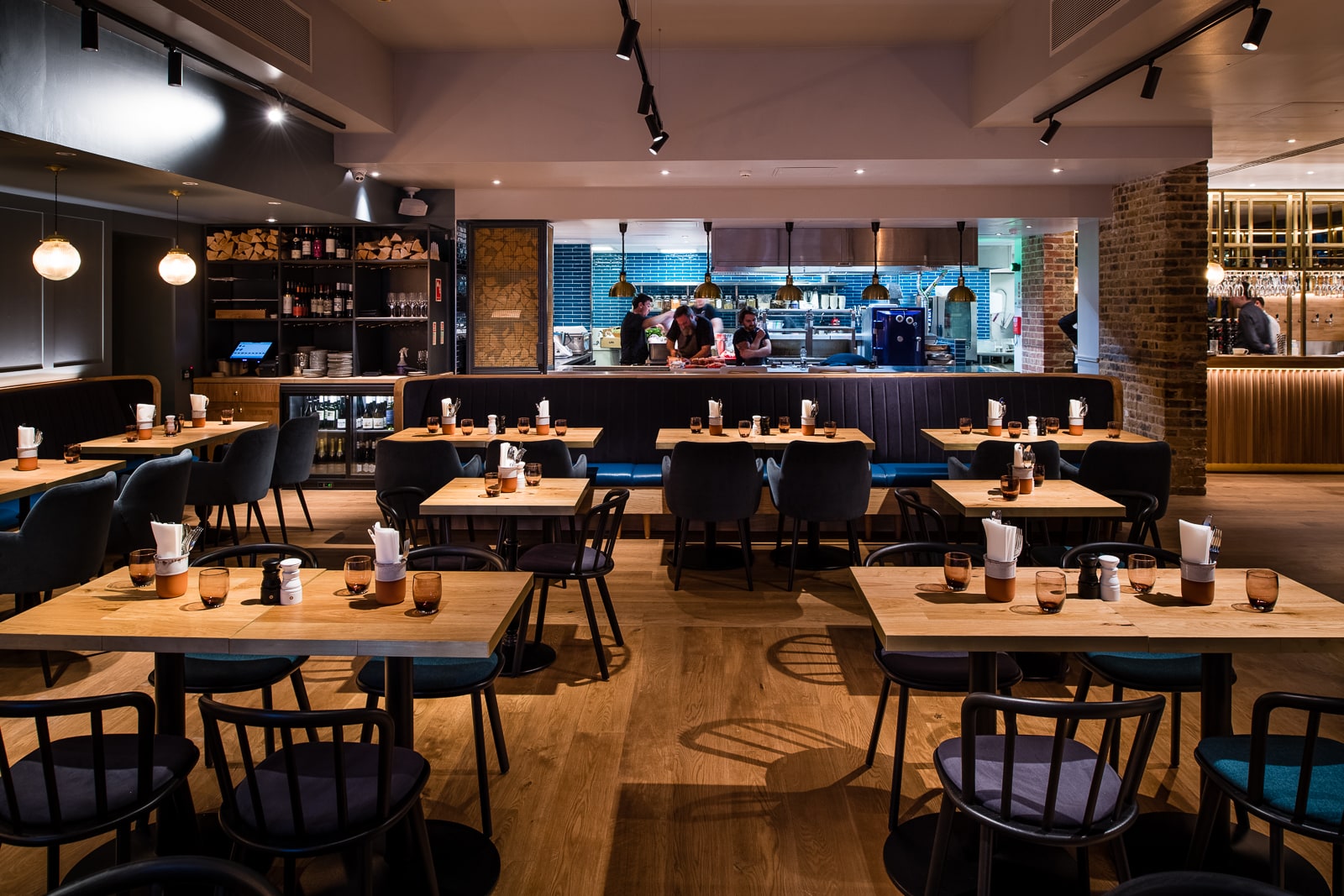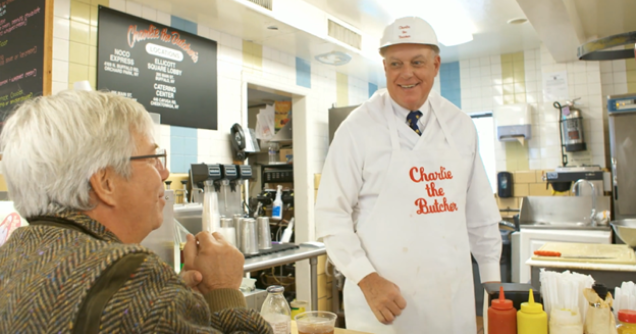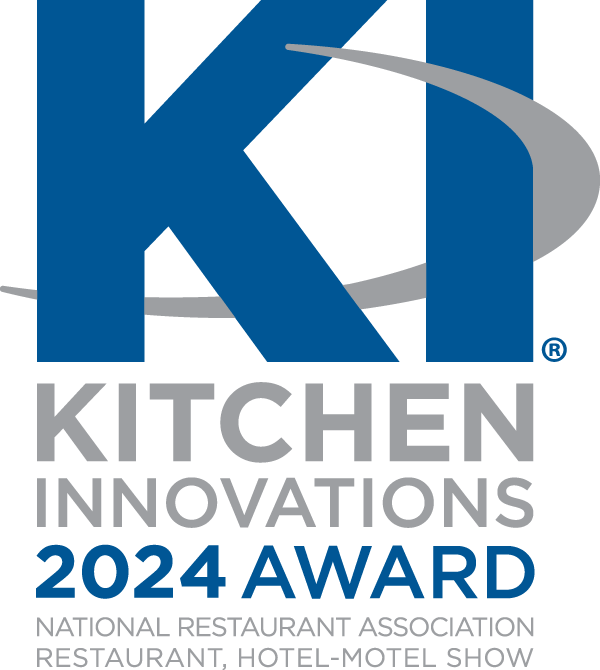
London restaurant Brigade, set up by Simon Boyle in partnership with accountancy firm PwC, employs people who have previously lived on the street and since completed a comprehensive training process to get their life back on track through a career in foodservice.
Following his own training and early career as a chef, Boyle developed an interest in starting a business with a social mission when he volunteered with a relief camp in Sri Lanka after the tsunami in 2004.
“When I came back I decided I needed to steer my career in a different direction. I could see how fragile life was and I spent about three to six months thinking about what to do,” he explains.
“I went out and tried to expose myself to charities and social entrepreneurs, and I realised homelessness was something I couldn’t answer. I visited hostels and spoke with people there, as well as people in government. They all said there are many reasons why somebody becomes homeless, but what I couldn’t understand was why they stayed homeless.”
A unique collaboration
Boyle (pictured below) spent 18 months working in London hostel House of St Barnabas, where he employed homeless women in the restaurant he set up. It was a useful experience to prepare him for his next project that would become Brigade. PwC had bought the building as part of their office space and had an interest in doing something social but were unsure which path to take. Boyle, on the other hand, knew exactly what we wanted to do.

For the corporate firm it has been a rewarding experience. “We take great pride in being able to support and empower disadvantaged and vulnerable adults, giving them the life and employment skills they need to gain the confidence to turn their lives around,” says David Adair, head of community engagement at PwC. “It’s a powerful example of a social enterprise in action.”
The third piece in the partnership was De Vere, who remained part of the project for four and a half years before BaxterStorey came on board 18 months ago. Though the hospitality company has been involved just a short time, it has been very engaged from the start.
“By providing a safe and supportive environment for our apprentices, they have been enabled to relearn essential life skills as well as develop culinary skills with the opportunity to create a better future. Witnessing so many apprentices grow in confidence and gain their independence is testament to the impact a charity like Beyond Food can have,” says chairman Alastair Storey.
Boyle believes Brigade is still the most innovative social business in London today. “The set of partnerships involved is absolutely unique,” he says. “When we first started we said we wanted to do something people would copy and no one has.”
Beyond Food is made up of the charity side and the trading arm, which is Brigade: a bar and kitchen serving sustainable British food with an undercurrent behind it, which is about training homeless people.
“Brigade does two things: it gives us a practical training outlet, but it also provides money for us to continue to do the work. It is not easy to run a profitable hospitality business,” says Boyle.
“We do one thing and that is inspire people around food, whether that is customers, apprentices or staff. We have developed a set of very structured programmes to get people from a point where they are very vulnerable to a point where they can stand on their own two feet and make a decision about where they want to take themselves.”
Working with 80 hostels across London, Beyond Food gets around 150 applications for each intake and, of those, around 120 homeless people start the programme. The initial six-weeks is an intensive period of preparation, the first part being a wellbeing programme called Fresh Life. “The idea is that if you start to look after yourself you will have the energy and motivation to move yourself forward,” says Boyle. The second part, Get Stuck In, is focused on employability. “It is about how to be an employee, find out what it takes, what you have to learn and how to find and keep a job,” he explains.
At the end of this process, some join one of the Brigade programmes – United Kitchen for cooking and Out Front focused on front of house – while others are referred to one of the partner restaurants where they start training or an apprenticeship. So six weeks after joining the programme, candidates can find themselves in full-time employment.
Holistic support
Built into the programme is a focus on securing independent accommodation for the trainees and helping them with any serious issues such as mental health. Beyond Food has a mental health counsellor who assesses each trainee and ensures they receive any treatment.
“They all have an element of mental health issues, most of them have had substance abuse issues and we have to manage and monitor that,” says Boyle. “We are working at the toughest end of the market, people who have lost everything, they have no self-esteem and, yes, are probably addicted. The reason for their addiction is not homelessness, that is the end point – 88% of homeless people have suffered childhood trauma.”
While the trainees are able to turn their life around through the programme, a welcome side effect for the industry is that it churns out high calibre candidates for restaurants and kitchens. “We are structured and we produce very good people. The industry is on its knees and we supply good staff and that is what is needed right now,” says Boyle.
On the importance of partnerships, Boyle points to the collaboration with PwC. “I was always rubbish at accounts. I partnered with a great accountancy team and look what we have achieved – 1,200 homeless people have been supported and we have 123 full-time employees.”
Today, people don’t often ask Boyle to address the return on investment in Brigade; he has proven it works. The number of people who have been helped – and the impact on those around them – speaks for itself. Of those who sign up for the programme, 60%-70% are successfully reassigned, while Brigade takes on a further 10%, for an overall completion rate of 80%.
While achieving this level of success is hard work, Boyle reckons it is utterly worthwhile. “These are the most inspirational people. After what they have been through they still turn up here and pull a shift,” he says. “The barriers they have had to get through are incredible and the fact that the majority have been totally under cared for leaves me in awe. Of course it is frustrating at times, but the wins are fantastic.”
Tina Nielsen
Picture: Paul Winch-Furness




